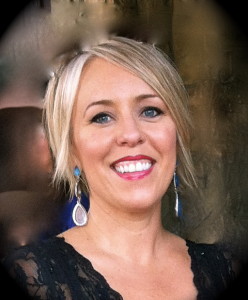I am driving down a stretch of road near San Diego State, listening in astonishment to the radio report that the federal ban on gay marriage has been overturned. As I try to take in the magnitude of this shift, I’m reminded of driving down the same stretch of road seven years ago, during the Prop 8 push when several children and their parents stood alongside the road holding signs that read, “Marriage is between a man and a woman!†I feel myself letting out a long a sigh of breath that I didn’t even realize I was holding.
A few days later, I step off an airplane in a small town in the south and ask my girlfriend, “Is this the part where we go back into the closet?†She nods in silence. As I look around while we wait for luggage, I feel that old, ugly familiar feeling of the knowing someone might wish to harm us because we’re lesbians. “Toto, I don’t think we’re in Kansas anymore,†I mumble as we walk into a convenience store for snacks and wine. Neither one of us wants to say it but I know we’re both thinking that we’ve seen this movie before and it doesn’t end well for the lesbians.
 As the week progresses and we move about the tiny town, going to the grocery store, restaurants, and the theater, I realize that thanks to living and dating in semi-sheltered in California, I forgot what this feels like – the visceral fight or flight, survival hackles up, fear of being harassed, fired, or hurt because of who we love. I also forgot the price of putting away part of who I am in public. I recall my early years in coming out and can still feel the weight of the secrecy about my relationships and the toll it took on my relationships with my girlfriends, on me, and on all my other relationships – with family, colleagues, and friends.
As the week progresses and we move about the tiny town, going to the grocery store, restaurants, and the theater, I realize that thanks to living and dating in semi-sheltered in California, I forgot what this feels like – the visceral fight or flight, survival hackles up, fear of being harassed, fired, or hurt because of who we love. I also forgot the price of putting away part of who I am in public. I recall my early years in coming out and can still feel the weight of the secrecy about my relationships and the toll it took on my relationships with my girlfriends, on me, and on all my other relationships – with family, colleagues, and friends.
I can’t help but think about my sisters who live in little towns in the south and other parts of the US where it still isn’t safe to be an out lesbian. When it comes to dating, how can we ever get to evaluating compatibility if we can’t yet safely know who is and who isn’t in our dating pool? How do we celebrate progress while holding the reality and the endurance to continue the fight towards equality? Not just for LGBT people, but for People of Color, for women, for people who are non-native English speakers, for everyone?
I don’t know the answers. But what I do know is that for me, critically examining my privilege and my own identity is the first move towards social justice. Acknowledging that as a White woman who lives in California I have some freedoms that my counterparts living in small towns in the south do not. I tell myself to remember this when I get all judgey-judge about how people “should†come out of the closet. Coming out feels like reinventing our identity – we go from being straight, or pretending to be straight to openly saying we’re gay and owning all the loss of freedoms and the beauty of being free of secrets at the same time. Like any major shift in life, this milestone becomes a marker in time: “before I came out†“after I came outâ€.
I am reminded of the many times in my life where I started over in some way: changing careers, moving across the country, recovering from a running injury. The challenge in reinventing our identity is really facing our own judgement. How can I be a teacher who doesn’t teach school? How can I be a Midwest girl who doesn’t live in the Midwest? How can I be a runner who can’t run? The idea of reinventing our identity is really the finding out more about who we already are as opposed to changing it.
And maybe this is the biggest win of all-that babies born today will never know a time when it was okay federally to dismiss LGBT people as second class citizens when it comes to marriage. The idea that people will have fewer obstacles to accepting and understanding more about who they already are makes it more likely that we’ll be able to question the social order and examine our own role in inequity, in all forms.



Love your writings! I can’t wait for the day you can walk down ANY street with pride in who you are!